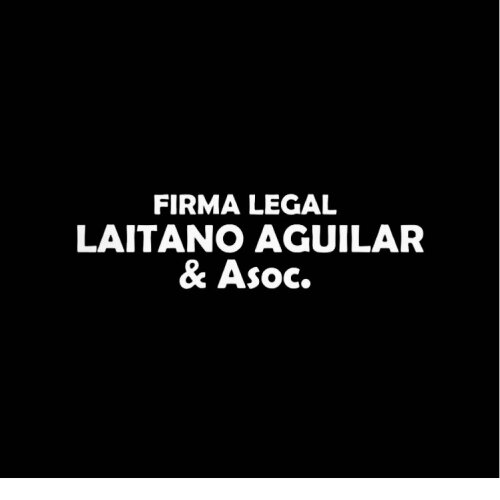Best Climate Change Law Lawyers in Tegucigalpa
Share your needs with us, get contacted by law firms.
Free. Takes 2 min.
List of the best lawyers in Tegucigalpa, Honduras
About Climate Change Law in Tegucigalpa, Honduras
Climate Change Law in Tegucigalpa, Honduras is a growing and evolving area of legal practice that addresses the environmental, regulatory, and social impacts of climate change. This branch of law encompasses both national legislation and international obligations designed to reduce greenhouse gas emissions, promote adaptation to climate impacts, and protect ecosystems. In recent years, Honduras has taken steps to integrate climate change considerations into environmental management and development planning, reflecting its vulnerability to extreme weather events such as hurricanes, droughts, and floods.
Why You May Need a Lawyer
If you are an individual, community leader, NGO, business owner, or public official in Tegucigalpa, you may encounter several situations where legal advice on Climate Change Law is essential. These include:
- Compliance with environmental regulations and emission standards
- Challenging or appealing development projects that impact climate resilience
- Accessing domestic or international climate finance mechanisms
- Understanding liability and responsibility in cases of climate-related damages
- Involvement in renewable energy projects or sustainable land management
- Negotiating with government agencies or other stakeholders on climate adaptation policies
- Protecting human rights in the context of climate impacts or environmental displacement
A lawyer knowledgeable in Climate Change Law can help ensure your activities comply with local and international laws, help resolve disputes, and secure your rights and interests in environmental matters.
Local Laws Overview
Key aspects of Climate Change Law in Tegucigalpa are shaped by both Honduran national legislation and Honduras's commitments under international agreements such as the Paris Accord. Relevant local legal frameworks include:
- Framework Law on Climate Change (Ley Marco sobre Cambio Climático): Establishes general principles and responsibilities for national and local authorities in climate mitigation and adaptation.
- General Environmental Law (Ley General del Ambiente): Regulates environmental protection, pollution control, and the sustainable use of natural resources.
- Regulations on Environmental Assessment and Licensing: Require that new projects fully evaluate and mitigate climate impacts.
- Energy and Water Laws: Include provisions for renewable energy incentives and sustainable water resource management to address climate challenges.
- Disaster Risk Management Laws: Focus on reducing vulnerability to climate-induced disasters, particularly important in Tegucigalpa due to its susceptibility to extreme weather.
At the municipal level, Tegucigalpa’s authorities are increasingly expected to develop climate adaptation policies and enforce relevant regulations, often in coordination with national ministries.
Frequently Asked Questions
What is Climate Change Law?
Climate Change Law refers to the body of legal rules, regulations, and agreements intended to address the effects of climate change, including emission reductions, adaptation strategies, and protection of communities at risk. In Honduras, it integrates national policies and international treaty obligations.
Who enforces climate change regulations in Tegucigalpa?
The Ministry of Energy, Natural Resources, Environment, and Mines (MiAmbiente) is the main governmental body overseeing climate change laws, often working with municipal authorities in Tegucigalpa for local enforcement.
Do businesses in Tegucigalpa have specific climate change obligations?
Yes, businesses may be required to assess and mitigate their environmental impacts, comply with sectoral emission standards, and obtain permits for activities affecting the climate or environment, especially manufacturing, construction, and energy projects.
Can citizens participate in decisions about climate change policies?
Yes, many climate and environmental laws in Honduras provide for public participation, consultation, and the right to submit comments or objections during the approval of new projects or policies.
What should I do if a project is harming the environment or my community?
You may file a complaint with MiAmbiente or the municipal authorities, and seek legal advice to pursue administrative claims, litigation, or demands for remediation under Honduran law.
Are there incentives for renewable energy in Tegucigalpa?
The Honduran government offers incentives for renewable energy projects, such as tax exemptions and feed-in tariffs, to stimulate investment in solar, hydro, and wind energy within the country.
How do climate change laws relate to human rights in Honduras?
Climate impacts can threaten rights to health, housing, and a safe environment. Honduran law recognises some protections, and citizens may pursue legal remedies if their rights are violated due to climate-related actions or inactions.
Does Honduras have commitments under international climate agreements?
Yes, Honduras is party to the Paris Agreement and other environmental treaties, which obligate the country to reduce greenhouse gas emissions and report progress on climate action.
What penalties exist for violating climate change regulations?
Penalties can include fines, suspension of permits, closure of facilities, or even criminal liability for severe infractions affecting the environment or public health.
How can a lawyer help me with climate change legal issues?
A lawyer can help you navigate complex regulations, represent you in disputes or litigation, prepare applications for permits or incentives, advise on compliance, and protect your rights in environmental matters.
Additional Resources
The following organizations and governmental offices can provide further information or assistance related to Climate Change Law in Tegucigalpa, Honduras:
- Ministry of Energy, Natural Resources, Environment, and Mines (MiAmbiente): The primary regulator for climate and environmental issues.
- Prosecutor’s Office for Environmental Protection: Handles cases of environmental violations, including those related to climate change.
- Honduran Institute for Earth Sciences (IHCIT): Provides research and data on climate trends and impacts.
- Civil society organizations: Such as Fundación Vida and the Alliance for Climate Justice Honduras, can offer community advocacy and support.
- Bar Association of Honduras: Can assist in finding qualified legal professionals with experience in climate and environmental law.
Next Steps
If you require legal support relating to climate change in Tegucigalpa, consider taking the following steps:
- Document your concerns, including photos, dates, and relevant official communications or evidence.
- Contact a professional lawyer or the Bar Association of Honduras to find an expert in environmental and climate law.
- Consult with relevant authorities such as MiAmbiente or municipal offices to clarify regulatory requirements or file a formal complaint if needed.
- Engage with local civil society groups for additional support or to amplify your voice in public consultations and policy discussions.
- Prepare all necessary documentation for legal procedures or permit applications in advance.
It is important to seek timely legal advice to safeguard your interests and ensure compliance with climate change legislation in Tegucigalpa, Honduras.
Lawzana helps you find the best lawyers and law firms in Tegucigalpa through a curated and pre-screened list of qualified legal professionals. Our platform offers rankings and detailed profiles of attorneys and law firms, allowing you to compare based on practice areas, including Climate Change Law, experience, and client feedback.
Each profile includes a description of the firm's areas of practice, client reviews, team members and partners, year of establishment, spoken languages, office locations, contact information, social media presence, and any published articles or resources. Most firms on our platform speak English and are experienced in both local and international legal matters.
Get a quote from top-rated law firms in Tegucigalpa, Honduras — quickly, securely, and without unnecessary hassle.
Disclaimer:
The information provided on this page is for general informational purposes only and does not constitute legal advice. While we strive to ensure the accuracy and relevance of the content, legal information may change over time, and interpretations of the law can vary. You should always consult with a qualified legal professional for advice specific to your situation.
We disclaim all liability for actions taken or not taken based on the content of this page. If you believe any information is incorrect or outdated, please contact us, and we will review and update it where appropriate.















